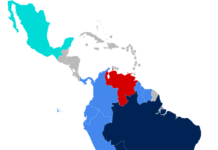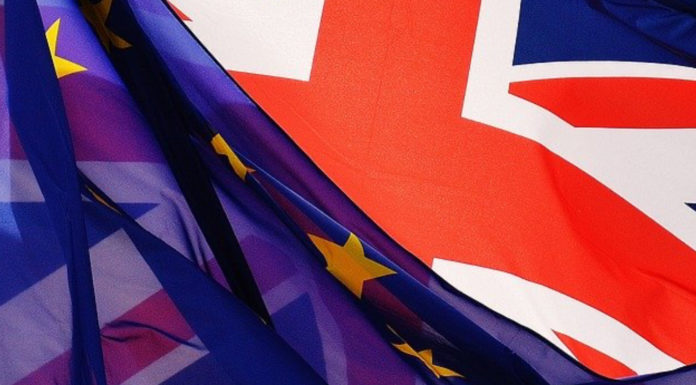At the 17 October EU Summit in Brussels, a number of remarkable things were agreed. Notably, Polish Prime Minister Donald Tusk managed to get the other EU leaders support his idea that a member state can invoke security reasons as justification for suspending asylum rights.
In the Summit conclusions, the leaders stated:
“Russia and Belarus, or any other country, cannot be allowed to abuse our values, including the right to asylum, and to undermine our democracies. (…) Exceptional situations require appropriate measures.”
Tusk also secured that the EU’s Migration and Asylum Pact was not even mentioned. This pact was agreed before the European Parliament elections, which witnessed a big win for rightwing parties. It was hailed as the supposed solution for the ongoing migration chaos, enabling the EU to stop the flow of illegal migrants into the EU. However, one of the provisions is the Pact is to foresee that member states will need to pay if they refuse to welcome asylum seekers from other member states. This is not only hostile to national democracy, it is also downright illiterate to assume that this would be a solution at all, given how there are no passport checks within the Schengen area. In sum, the pact is simply more of the same. It is good to see EU leaders no longer even mentioning it.
During yesterday's European Council summit, Polish PM Donald Tusk wanted the EU to back the idea that a country can invoke security reasons as justification for suspending asylum rights.
And he got it.
🔗 https://t.co/hpK2YZhmbu pic.twitter.com/Ne2ypVFAzl
— POLITICOEurope (@POLITICOEurope) October 18, 2024
Instead, the EU Summit did instead endorse outsourcing of migration processing. This is quite a dramatic shift from the consensus so far.
In their conclusions, EU leaders state that “new ways to prevent and counter irregular migration should be considered, in line with EU and international law.”
Italian Courts complicating the deal Italy has concluded with Albania to outsource asylum processing shows that changes to national and international law will likely be needed to move to a more effective system. Recently, the European Court of Justice ruled against Czechia, stating that European governments can no longer “designate a portion of the territory of a third country as safe” and that “material conditions for such designation [must] be fulfilled for the entire territory.”
"Civilisations unable to control their borders die – and ours is no exception." My column today says all Western countries are grappling with the migration crisis, and we need new legal frameworks and the capacity to deport all illegal immigrants. https://t.co/nmvl85sNWt pic.twitter.com/3z6c647C3X
— Nick Timothy MP (@NJ_Timothy) October 21, 2024
Ultimately, only Australia’s approach to transfer those that try to enter illegally to a different country has worked to stop illegal migration. Those trying to make it into Australia illegally are transferred outside of the country. They thereby still retain the right to apply for asylum, only not in Australia. This policy has succeeded in stopping illegal migration for about two decades now. During the same period, around 30.000 people died at sea, trying to reach the EU.
European Commission President Ursula von der Leyen also announced at the Summit that “we will soon present a new [returns directive] proposal”, adding that “we need to review the concept of a safe 3rd country. How is it defined?”
On how the outsourcing of migration processing would look like, however, no details were provided in the Council conclusions. That is also because EU leaders are still divided, with for example the Netherlands proposing an offshore return center in Uganda. This is focusing on those denied asylum. Italy’s approach is to focus on outsourcing the procedure outside to a location of the territory. In any case, an important first step has been taken.
"Is European migration policy finally about to change?" My latest for @brusselssignal: https://t.co/CQ1O0mvNkv #migration #returnhubs #Albania @GiorgiaMeloni #EUCO
— Pieter Cleppe (@pietercleppe) October 17, 2024
'Not trivial': EU leaders endorse migration outsourcing but offer few details.
At the end of a high-stakes summit in Brussels, EU leaders signalled a potentially transformative shift in how the bloc approaches migration policy.
— euronews (@euronews) October 18, 2024
Competitiveness
Almost no attention was given to another topic that was on the agenda of the EU Summit: competitiveness. This despite the fact that in the run-up to the Summit, Germany’s leading business association, BDI, issued a warning that deindustrialization was no longer a risk but a reality. They stated:
“Today, this risk [of de-industrialisation] has become a reality in significant parts of the industry.”
Germany’s main industry association, BDI, issues a stern warning:
"Today, this risk [of de-industrialisation] has become a reality in significant parts of the industry.” https://t.co/hCjDVAy3C9 #Deutschland #Energiewende #Germany #Climate@Der_BDI pic.twitter.com/Rl0uhFlhea
— Pieter Cleppe (@pietercleppe) October 16, 2024
The key reason is of course Europe’s sky-high energy prices. The EU’s Emission Trading System or “ETS”, which functions as an effective climate tax, is at the core of this. The price of natural gas in the EU is scheduled to be five times higher than in the United States in 2025. The cost of the EU’s climate tax alone is higher than the total cost of natural gas in the U.S. How on earth could Europe’s energy-intensive industry be expected to compete?
Moreover, the announcements by Google and Amazon to build small nuclear reactors in order to have sufficiently cheap electricity to develop Artificial Intelligence (AI) – related products indicates that Europe’s energy problem will also badly affect AI innovation.
Why the EU's "ETS" climate tax needs to be scrapped: https://t.co/r0KG9Mfmk5
— Pieter Cleppe (@pietercleppe) October 16, 2024
Trying to reduce CO2 emissions is at the heart of the EU’s punitive climate policies. While in Europe, a big change of heart is thankfully visible when it comes to nuclear power – even if the two new EU Commissioners-designate responsible for energy policy are anti nuclear – the EU’s Emission Trading System is still a sacred cow.
That needs to change. There are alternative policies conceivable to reduce CO2 emissions. For example, in a new study, the Warsaw Enterprise Institute and like-minded think tanks suggest replacing the collectivist “Paris Agreement” with a “Climate & Freedom Accord“. This international treaty would witness signatories benefit from trade advantages if they implement climate-friendly free-market policies.
The think tanks argue this would “de-bureaucratise the economy”, along with “tax changes (…) to make investing in PP&E (Property, Plant, and Equipment) more profitable in a way that incentivises companies not only to maintain their current capacities but also to modernise and develop new projects. Subsidies of any kind should be abolished in an orderly and gradual manner.” Other suggested measures signatories to such an international treaty could introduce are tax-exempt “CoVictory bonds” as well as targeted tax cuts (Clean Tax Cuts, CTCs) in the four sectors responsible for 80% of greenhouse gas emissions—transport, energy and electricity, industry, and real estate. Tax cuts aimed at breaking up monopolies are another possible measure.
The importance of innovation
In sum, this approach would put innovation rather than a punitive approach central. Unfortunately, the EU is absolutely not planning to consider this and is instead going full steam ahead with its protectionist climate tariff CBAM, something which has provoked the ire of trading partners like India. In the UK, there is a debate on whether to copy the EU’s folly. A new study by the UK Growth Commission warns that if the UK were to do this, it “could lead to GDP per capita losses of between roughly £150 and £300”, or even up to £650, in case supply chains would realign around the lowest cost producers. The researchers have also calculated the benefits of the approach of replacing the Paris Accord with the mentioned Climate and Freedom Accord, estimating these at £1,000 per capita.
Rather from refusing to consider changes to its ETS climate tax, the EU decided earlier this year to even expand the system to road and heating fuels, hitting consumers hard. That was before the European Parliament election, but the Commission machine does not seem to have learned much from the outcome of that vote. It was just revealed that European Commissioner Hoekstra wants the EU to stick to its controversial plans for a de facto ban on combustion engines from 2035 on. This is one of the reasons for the current crisis in Europe’s car manufacturing sector. You cannot make it up.
Incredible:
"The EU is sticking to its controversial plans for curbs on combustion engines in the EU from 2035, according to internal documents" https://t.co/1gakFYxL0R
— Pieter Cleppe (@pietercleppe) October 17, 2024
The EU’s October Summit does deserve credit for finally considering policies along the lines of what Australia has been doing for 20 years now, avoiding the terrible human toll resulting from the EU’s chaotic approach. When it comes to competitiveness, however, the EU is absolutely not ready to explore alternative policy options. Germany’s metal and electrical companies just announced that they are expecting 250,000 to 300,000 job losses in the next 5 years, but none of that seems to filter through to top policy makers. This is unlikely to remain the case. EU leaders should realise that if they remain unwilling to address reality, they will be replaced with people that are willing to.













